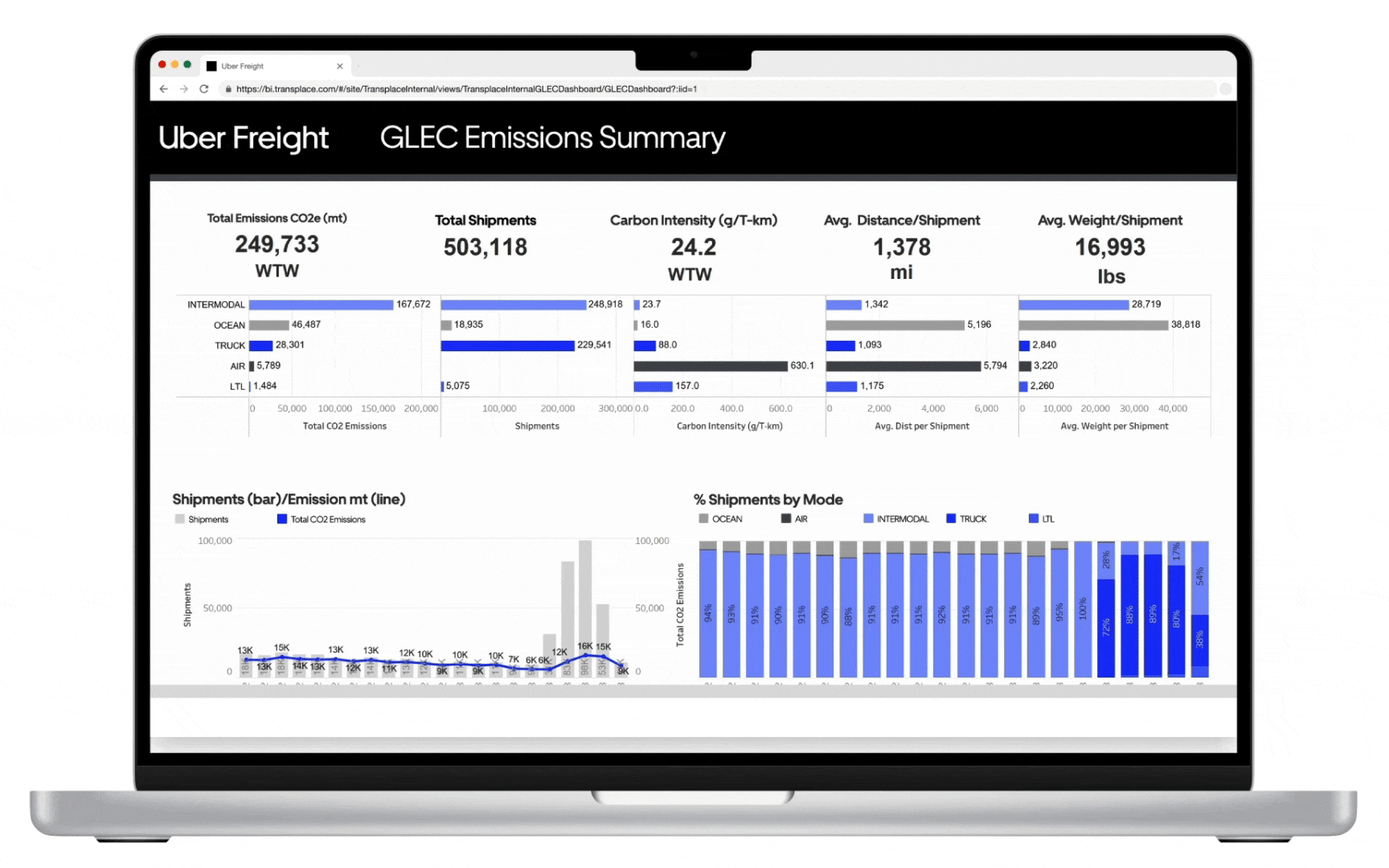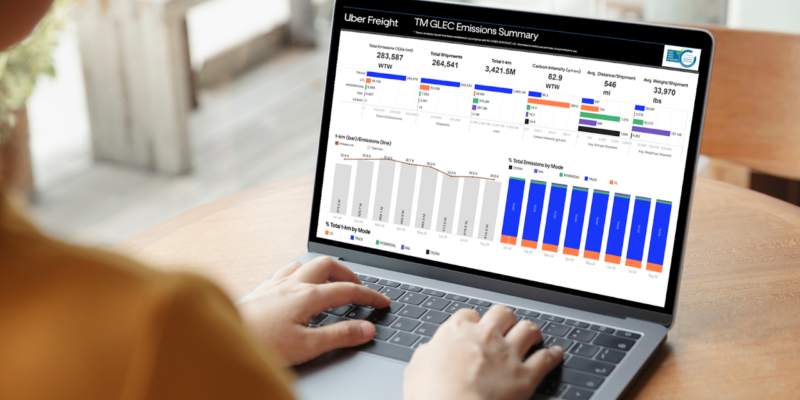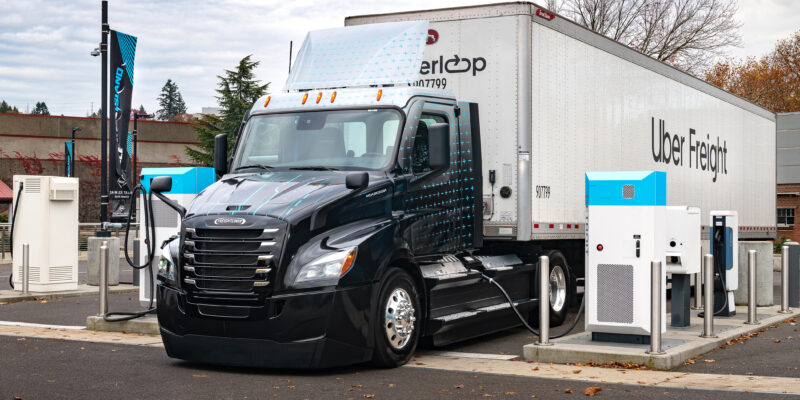Toward a sustainable supply chain: Our commitment to cleaner transportation

Deadhead. Fuel inefficiency. Poorly-planned routes. Freight causes a staggering eight percent of global carbon emissions, exacerbated by inefficiencies like these—many of which are avoidable. In the US, one percent of the total freight emissions comes from empty trucks alone. With the volume of goods shipped in the US expected to grow by nearly a quarter over the next two years, the urgency to solve these sustainability issues is growing and requires industry-wide collaboration to address.
Decarbonizing global supply chains is an enormously complex problem. And while global sustainability efforts are picking up steam, we need to work together to make a widespread impact across global logistics networks. This endeavor requires a holistic approach to make real progress in eliminating emissions – one that simplifies the industry’s ability to make sustainability an integral aspect of each supply chain decision.
The team at Uber Freight works with thousands of global brands to manage $18B of freight and maintains one of the largest networks of carriers all underpinned with an enterprise suite of end-to-end logistics applications, managed services, and modes of transportation that deliver a holistic approach to coordinating global logistics networks. Together, this vast ecosystem and our world-class technology allow us to have a profound impact on the movement of goods at scale. That kind of impact is precisely why we’re leading the charge to transform supply chain sustainability.
Today, we’re publicly announcing our company-wide sustainability commitments—and our vision for making it possible.
By 2040, we aim to shift 80% of our global brokerage shipments to cleaner transportation. By 2030, our global corporate operations aim to achieve net-zero climate emissions.
More sustainable shipping options—such as electric trucks, autonomous vehicles (AVs), and rail—are within reach for our business partners. These solutions allow businesses to move freight more efficiently and reduce emissions. The challenge is accessibility. The integration and transition to cleaner capacity options requires network data, technology, and, most importantly, a partner. That’s where we come in.
Network optimization tools harness data and artificial intelligence to create more efficient routes, transition freight to more sustainable options like rail, and identify lanes ripe for electrification or automation. By eliminating empty miles, chronic delays, and redirecting emission-intensive shipments, the matching and routing tools will help customers make immediate efficiency improvements. Just in the last year, Uber Freight has eliminated a total of ~2.3M empty miles—and with the shippers and carriers we have on board, we can do much more.
Many of today’s brands have made commitments to advance sustainability in their supply chains. However, it’s critical they have access to tools that enable emissions performance tracking and the capacity options to transition to cleaner transport solutions. They also require a partner that can help facilitate their supply chain transformation – one that is deeply integrated in their business and vast network of sustainability resources.
Our team has also formed strategic partnerships with organizations paving the way for increased efficiency and sustainability in freight. Earlier this year, we partnered with WattEV to deploy electric capacity in California and better understand the nuances that accompany electrification. We’re also actively working with leading infrastructure providers to navigate range and charging considerations of electric trucks. To advance autonomous capacity options, we’re collaborating with Volvo Autonomous Solutions (VAS), Aurora, and Waabi to facilitate the integration of AVs into supply chains.
Sustainability must become a primary consideration in a company’s procurement decisions: in order to create sustainable supply chains, opportunities for emissions efficiency need to be put in shippers’ hands. Already, our GLEC-based, third-party audited Emissions Dashboard offers widespread emissions transparency, bringing climate considerations into every single freight decision. Going forward, we’re bringing sustainability to the fore of our entire product and service suite, putting our technology to work for the climate—and helping companies make the smartest decisions they can.

Industry-wide buy-in and the widespread proliferation of clean capacity will take time: that’s why we’ve outlined ambitious goals with a pragmatic roadmap. Our mission is to simplify and accelerate this transition by promoting the measurement of emissions impact and the adoption of sustainable practices across supply chains. Through a combination of technology, scale, capacity options, and consultation, we can elevate sustainability from piecemeal to an integral factor in customers’ decision-making processes.



